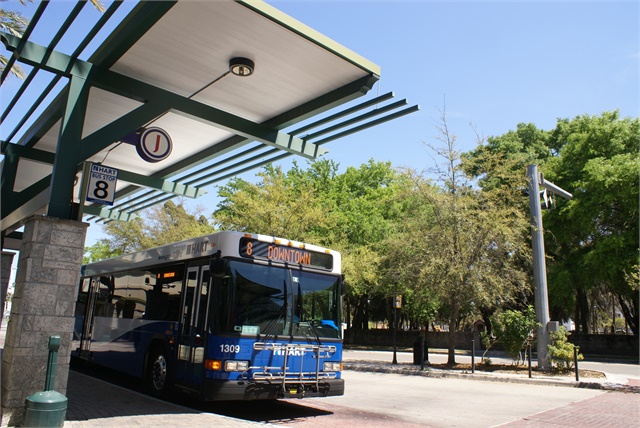[ad_1]
Massive federal defunding shuttered mental institutions across the country from the 1950s to the 1980s, leaving a skeletal support system in their place. The incarceration of people in need of mental health services is perhaps one of the greatest social crises of our time. We’ve seen mental health care become mental health detention. Created by psychiatrist and documentarian Kenneth Paul Rosenberg, Bedlam takes us inside a vastly under-resourced psych ER and a nearby jail, where thousands of people suffering from severe mental illness wait on solutions from policymakers. Premiering tonight on PBS in the midst of a pandemic that’s reshaping the way we think about all aspects of our society, the documentary turns our attention to the failings of the carceral system as a form of mental health treatment, and helps point the way toward a different future.
As I explain in the film, the nexus of mental health and criminal justice is one I know too well. When I was 14 years old, my then-19-year-old brother, Monte Cullors, was sentenced to 32 months inside Los Angeles County jails. Monte was beaten, shocked with tasers, and eventually choked unconscious. He was later diagnosed with bipolar schizoaffective disorder, the symptoms of which include hallucinations, delusions, and mood disorders such as mania and depression. Like most people who are imprisoned and brutalized, he was also suffering from post-traumatic stress disorder.
My brother was but one of thousands of people who have seen their mental illness go untreated or be worsened by being incarcerated. As the Vera Institute reported, today, “about 14.5% of men and 31% of women in jails have a serious mental illness, such as schizophrenia, major depression, or bipolar disorder, compared to 3.2 and 4.9%, respectively, in the general population.” Bedlam humanizes these statistics by showing California Gov. Gavin Newsom walking through the halls of Tower One at Los Angeles County Jail and hearing a corrections officer share that they simply do not have the resources and support needed to care for the 1,500 people there who have been diagnosed with a mental health problem. There’s an added layer of racial disparity in our mental health and criminal justice crisis. Numerous reports acknowledge the alarming reality that “mental health screening tools used by jails reproduce racial disparities, resulting in fewer Black and brown people screening positive and thus remaining under-referred and undetected in the jail population.”
This grave injustice and mental health crisis that is disproportionately impacting Black and brown communities led me to begin my work toward transforming our system from a punitive space to one rooted in decarceration, accountability, transparency, and healing. Nearly a decade ago, I created the Coalition to End Sheriff Violence. Since then, more than 20 organizations have joined me in this fight, and together we have established Los Angeles County’s first Civilian Oversight Commission over the Los Angeles County Sheriff’s Department. Today, our work continues; we are charting a new pathway and claiming victories for our community. Last month’s passage of ballot Measure R, the largest jail reform effort in the country, will be an opportunity for Los Angeles County to imagine our system anew. This community victory requires that the county develop a plan to reduce the county jail population and provide alternatives to incarceration, reinvesting jail dollars into community-based prevention and mental health treatment for low-level, nonviolent offenders. This global pandemic has raised our sense of urgency to care for those inside our jail system.
Stemming from our existing coalition partners’ goals to reform our jail system and address current health needs with transparency and accountability, the newly-formed Justice Los Angeles COVID-19 Response Team sees COVID-19 not as a moment in history to pause, but an opportunity to sharpen the focus of our movement. We want to move toward decarceration and care-informed models that partner with community groups and take into consideration trauma and health needs to facilitate rehabilitation and reintegration. That is why we are leaning into the alternatives to incarceration recommendations and Measure R. One core example of this work is our push for early release, which includes 3,300 people with mental illness that a RAND study has determined can be safely and better served in a community placement. We are seeing Los Angeles County leaders take initial steps, and we are demanding more support. This moment calls for the local government to earmark millions of dollars to better address the mental health crisis inside our jail system.
Our coalition is ready to set an example for the rest of the nation about how to address this health crisis from inside a system with some of our most vulnerable populations, who are primarily Black and brown. In addressing their needs, we are all better prepared to handle not just our next health crisis, but the one we’ve neglected for decades. Watch Bedlam tonight, and bear witness to the faces of those inside our jail system who need us to step up. Move forward with us. We want Los Angeles, the epicenter of America’s mental health crisis, to become the epicenter of change.
Patrisse Cullors is a co-founder of Black Lives Matter and a senior fellow at Prism. Follow her on Twitter @OsopePatrisse.
Prism is a nonprofit affiliate of Daily Kos. Our mission is to make visible the people, places, and issues currently underrepresented in our democracy. By amplifying the voices and leadership of people closest to the problems, Prism tells the stories no one else is telling. Follow us on Twitter @ourprisms and on Facebook.



















